Veronika Stephanie
Trustworthy Privacy-preserving Hierarchical Ensemble and Federated Learning in Healthcare 4.0 with Blockchain
May 16, 2023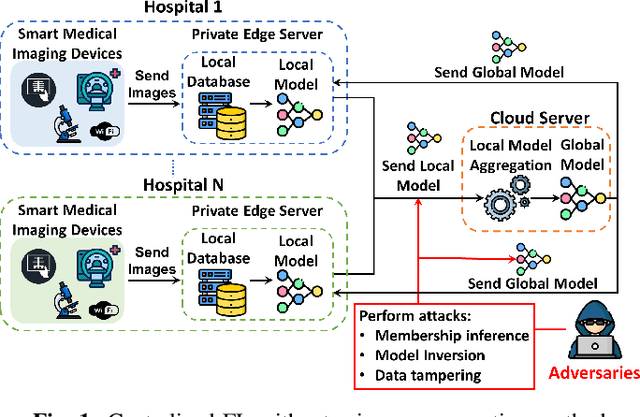
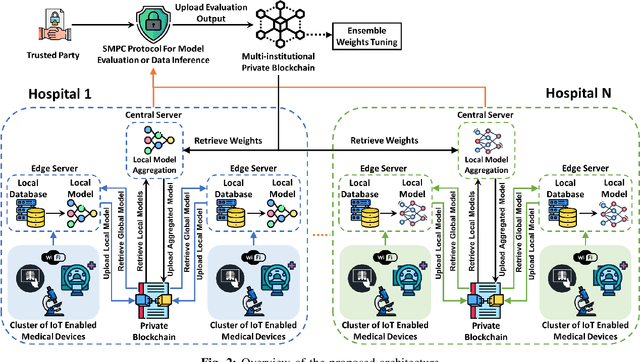
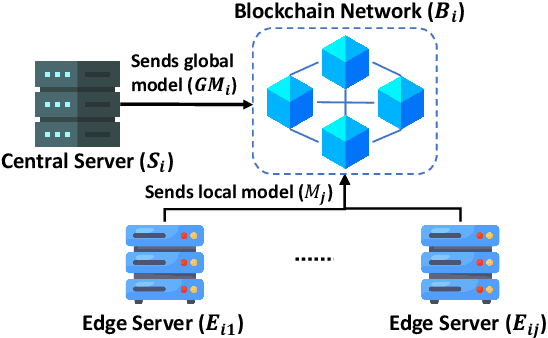
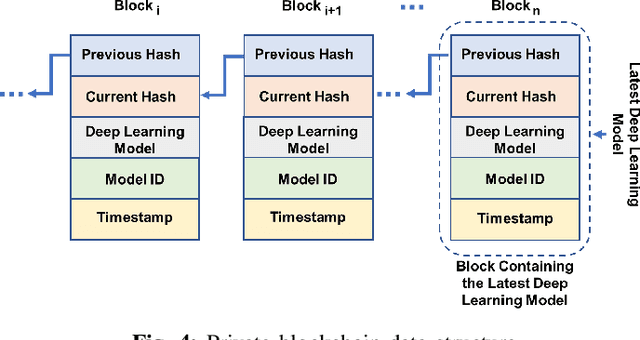
Abstract:The advancement of Internet and Communication Technologies (ICTs) has led to the era of Industry 4.0. This shift is followed by healthcare industries creating the term Healthcare 4.0. In Healthcare 4.0, the use of IoT-enabled medical imaging devices for early disease detection has enabled medical practitioners to increase healthcare institutions' quality of service. However, Healthcare 4.0 is still lagging in Artificial Intelligence and big data compared to other Industry 4.0 due to data privacy concerns. In addition, institutions' diverse storage and computing capabilities restrict institutions from incorporating the same training model structure. This paper presents a secure multi-party computation-based ensemble federated learning with blockchain that enables heterogeneous models to collaboratively learn from healthcare institutions' data without violating users' privacy. Blockchain properties also allow the party to enjoy data integrity without trust in a centralized server while also providing each healthcare institution with auditability and version control capability.
Privacy-Preserving Ensemble Infused Enhanced Deep Neural Network Framework for Edge Cloud Convergence
May 16, 2023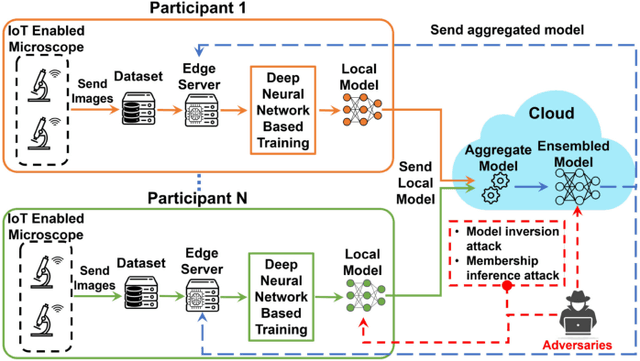
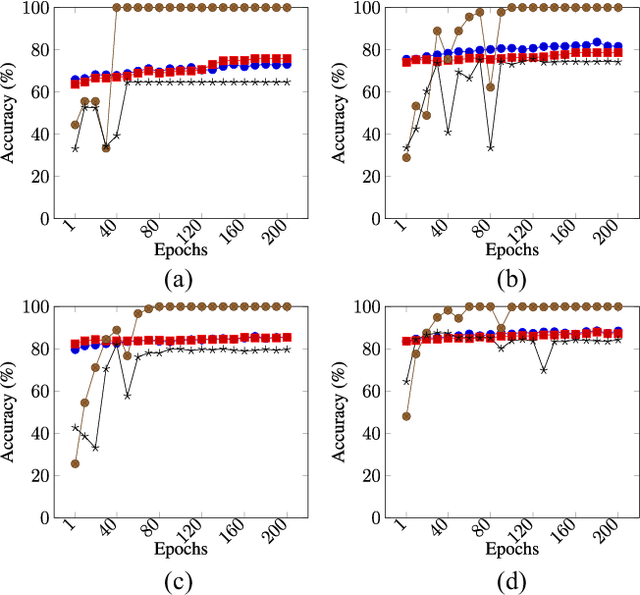
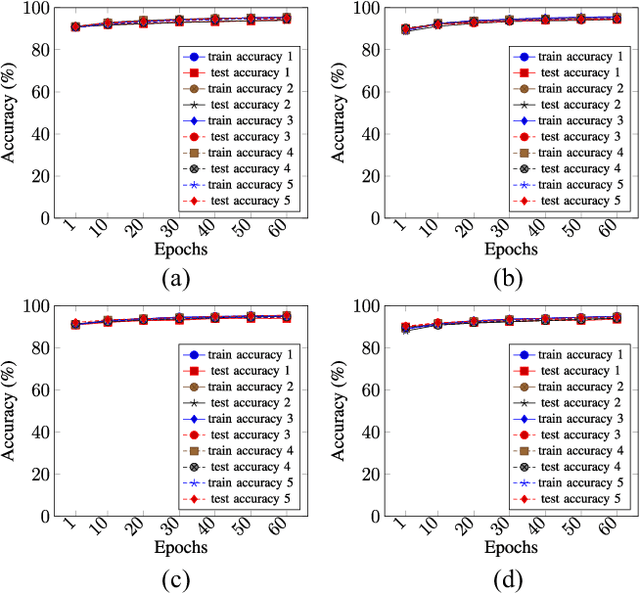
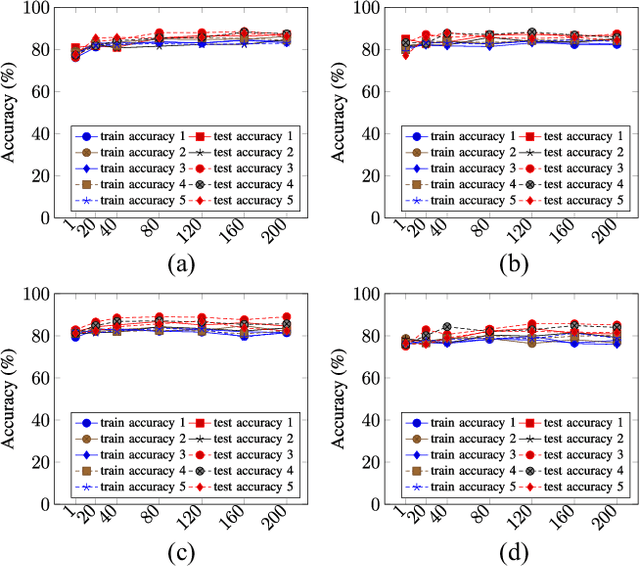
Abstract:We propose a privacy-preserving ensemble infused enhanced Deep Neural Network (DNN) based learning framework in this paper for Internet-of-Things (IoT), edge, and cloud convergence in the context of healthcare. In the convergence, edge server is used for both storing IoT produced bioimage and hosting DNN algorithm for local model training. The cloud is used for ensembling local models. The DNN-based training process of a model with a local dataset suffers from low accuracy, which can be improved by the aforementioned convergence and Ensemble Learning. The ensemble learning allows multiple participants to outsource their local model for producing a generalized final model with high accuracy. Nevertheless, Ensemble Learning elevates the risk of leaking sensitive private data from the final model. The proposed framework presents a Differential Privacy-based privacy-preserving DNN with Transfer Learning for a local model generation to ensure minimal loss and higher efficiency at edge server. We conduct several experiments to evaluate the performance of our proposed framework.
 Add to Chrome
Add to Chrome Add to Firefox
Add to Firefox Add to Edge
Add to Edge